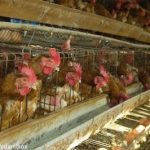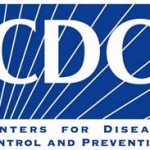Food & Water Watch, which has been working against the sub therapeutic use of antibiotics on factory farms, states that Reuters released a report stating that those uses are continuing. Industry data is usually kept private, even from the FDA. Use of antibiotics in this way is linked to the explosive growth of antibiotic-resistant bacteria. The report, titled Farmaceuticals, showed that the nation's largest poultry farmers feed chickens antibiotics routinely. And some of those antibiotics are medically important to human beings. Five major companies - Tyson Foods, Pilgrim's Pride, Perdue Farms, George's, and Koch Foods were the focus of the investigation. More than 300 documents by poultry producers over the last two years were reviewed. These "feed tickets" come from the mills … [Read more...]
White House Releases Report on Combating Antibiotic Resistance
The President's Council of Advisors on Science and Technology (PCAST) has released a report today about combating antibiotic resistance. The White House also released a National Strategy on Combating Antibiotic Resistant Bacteria and a Presidential Executive Order which emphasizes the importance of tackling this challenge. Antibiotic resistant bacteria are evolving at an alarming rate and are growing faster than the development of new antibiotics. The cost of antibiotic infections in the United States every year is more than $20 billion. The cost of lost productivity due to antibiotic-resistant infections is $35 billion every year. The World Health Organization has issued a warning too, about the dangers of not being able to treat resistant infections. PCAST recommends that there be … [Read more...]
Public Officials Move to End Antibiotic Abuse on Factory Farms
On Tuesday, September 9, 2014, the San Francisco Board of Supervisors and the Berkeley City Council passed resolutions supporting national legislation to stop the abuse of antibiotics on factory farms. San Francisco is the first major city in California to pass such a resolution. Eighty percent of antibiotics used in this country are given to animals on factory farms for weight gain and to reduce the risk of illness in crowded and filthy conditions. These types of use create antibiotic resistant bacteria, called "superbugs", that cannot be destroyed by drugs. The bacteria make the leap to humans, making infections difficult or impossible to treat. Food & Water Watch commends these public officials for recognizing the urgency of the matter. The Berkeley resolution also supports … [Read more...]
Positive and Negative Trends in Antimicrobial Resistance
The FDA released its National Antimicrobial Resistance Monitoring System (NARMS) 2011 Executive Report this week, showing both increasing and decreasing antimicrobial resistance levels. The report focuses on resistance to antibiotics that are considered important in human medicine, as well as bacteria that are resistant to three or more classes of antibiotics. Samples are collected from people, food producing animals, and retail meat source, then tested. The key findings include: 85% of non-typhoidal Salmonella collected from people had no antibiotic resistance. In people, the five-drug resistance pattern discovered in Salmonella Typhimurium declined to 19.5% in 2011 from its peak of 35.1% in 1997. Salmonella resistance to ciprofloaxcin, one of the antibiotics used to treat those … [Read more...]
USDA Denies Petition to Declare Antibiotic-Resistant Salmonella an Adulterant
The USDA on Thursday denied a petition from the Center for Science in the Public Interest (CSPI) to declare antibiotic-resistant Salmonella an adulterant in food. The non profit petitioned the government three years ago to add the dangerous bacteria to the list. If a bacteria is declared an adulterant, it cannot be present in food sold to the public. CSPI food safety director Caroline Smith DeWall said in a statement, "USDA's failure to act on antibiotic-resistant strains of Salmonella in the meat supply ignores vital information about the public health risk posed by these pathogens. Despite numerous examples of outbreaks linked to resistant pathogens, USDA leaves consumers vulnerable to illnesses that carry a much greater risk of hard-to-treat infections leading to … [Read more...]
Senators Ask FDA for More Info About Animal Antibiotic Use
Senators Elizabeth Warren (D-MA), Dianne Feinstein (D-CA), and Kirsten Gillibrand (D-NY) have written a letter to FDA Commissioner Margaret Hamburg, asking her for more information about the public health threat of antibiotic resistant bacteria. They are concerned that the FDA's policies on sub therapeutic use of antibiotics in farm animals do not go far enough to address this growing problem. A recently approved Veterinary Feed Directives rule would require farmers to obtain a "prescription-like document" to acquire "nearly all" antibiotics. Last week the U.S. Second Circuit Court of Appeals in New York ruled that the FDA does not need to hold hearings on antibiotic use in farm animals to force the industry to prove this practice is safe. Food safety advocates were dismayed by this … [Read more...]
Court Rules FDA Doesn’t Need to Hold Hearings on Antibiotic Use
In a serious blow to those concerned about antibiotic use in farm animals, the U.S. Second Circuit Court of Appeals in New York ruled on Thursday, July 24, 2014 that the FDA does not have to hold hearings on the safety of feeding antibiotics to farm animals at sub therapeutic levels. Two years ago, two courts ruled that the FDA is required to hold those hearings to force the industry to prove that this particular use of antibiotics is safe. The appeal would have forced the FDA to end the use of penicillin and tetracyclines, two classes of antibiotics that are critical to human health, in animal feed. There is overwhelming scientific evidence linking this misuse of drugs in food animals to rising antibiotic resistance in many pathogenic bacteria. At least 20,000 people in the United … [Read more...]
Antibiotic Resistant Salmonella Paves the Way for Typhoid Fever Resurgence
Antibiotic resistant Salmonella is paving the way for a resurgence in typhoid fever, according to a new report from the Centers for Disease Control and Prevention (CDC). The report, which compared antibiotic resistance levels during 2012 to levels between 2003-2007, found that the bacteria that causes typhoid fever, Salmonella typhi, increased resistance to quinolone drugs 68 percent in 2012. Typhoid fever is a serious illness spread by contaminated food and water. Symptoms usually develop one to two weeks after exposure and last up to four weeks. They include lasting fever that becomes constant, abdominal pain, muscle weakness, lethargy, headache, and loss of appetite. Some patients also have chest congestion, constipation and a skin rash. In rare cases, internal bleeding or death can … [Read more...]
Antibiotic Resistance in Foodborne Bacteria a Public Health Threat, Says CDC
Antibiotic resistance in foodborne bacteria continues to be a serious public health threat, according to a new report from the Centers for Disease Control and Prevention (CDC). About 430,000 Americans contract antibiotic-resistant infections from foodborne bacteria every year and resistance in some strains is growing. The CDC report is based on data from the National Antimicrobial Resistance Monitoring System (NARMS), a collaborative effort by the CDC, the U.S. Food and Drug Administration (FDA) and the U.S. Deaprtment of Agriculture(USDA), that has tracked antibiotic resistance in humans, retail meats and food animals since 1996. The CDC NARMS report compares resistance levels in human samples in 2012 to a baseline period of 2003-2007. While multi-drug resistant Salmonella has … [Read more...]
AMA Wants to Ban Antibiotic Use for Animal Growth Promotion
The American Medical Association (AMA) adopted a resolution this month that calls for its members to support the discontinuation of antibiotics in farm animals for growth promotion. This common practice has added to the problem of antibiotic resistant bacteria. The document states that the CDC estimates that at least 23,000 patients die from antibiotic-resistant infections every year. And since the relationship between antibiotic-resistant infections in people and antibiotic use in agriculture is well-documented, the AMA supports efforts to ban this use in food-producing animals. The document also states that medically-important antibiotics are used in agriculture for non-therapeutic reasons and that a "large and compelling body of scientific evidence" shows that antibiotic use in farm … [Read more...]











